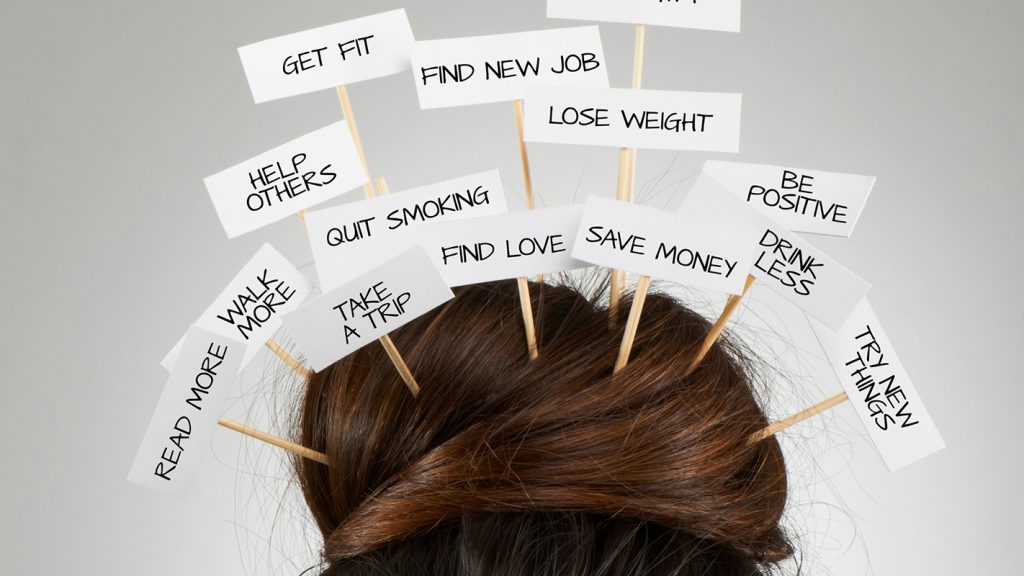Written By: Dr. Gloria Lee, Registered Psychologist
Many of you set new year’s resolutions and have great hopes of changing and improving yourself. However, most people give up shortly after the new year has just begun. By the end of January, 55-75% fail to achieve their resolution. The number keeps dropping rapidly over the year and by December, only 8% meet and keep their resolution.
So how can you increase your chances of achieving your new year’s resolution when the odds are against you? Here are 5 secrets of how people successfully meet their resolution and keep them over time.
1. Make your resolution super specific
Get clear on what you want to achieve and how you’ll make it happen. Then start working backwards.
Put an end date on when you want to achieve your goal (e.g., lose 30 lbs. by June 30th). Then break down this goal even further within that time period (e.g., 5 lbs. per month for 6 months, thus, 1.1 lbs. per week). Breaking things down into micro-goals makes it feel much more attainable (e.g., 1.1 lbs. per week rather than 30 lbs.).
Now break down the steps of what you’ll need to do to achieve the overall goal (e.g., change my diet, buy workout gear, join a gym, go work out, etc.).
Then break it down even further, just like with the calendar (e.g., to change my diet: look up healthy recipes online, get rid of junk food in the home, buy healthy groceries, etc.).
Now put a date on the calendar of when you’ll do each of these things. By breaking down larger steps into micro-steps, the overall goal seems more attainable and your chances of successfully achieving your resolution increases dramatically.
2. Make your resolution part of your daily habit
Increase your chances of achieving your goal by ensuring the micro-steps are part of your daily routine. For instance, with the goal of losing 30 lbs., you may want to prepare your workout gear the night before by laying it out on your bedside or on the way to the bathroom, so you will see it and literally run into it in the morning. This makes it easier to follow-through and remember to work out. Likewise, you can prepare and refrigerate the ingredients for a smoothie into a blender the night before so all you’ll have to do in the morning is turn on the blender.
Do this for every micro-step. By making each step as easy as possible, you prevent yourself from making excuses not to do something. It also helps to form new habits that eventually become part of your daily routine.
3. Celebrate your successes
Whenever you achieve a micro-goal (e.g., lost 1.1 lbs that week) and intermediate goal (e.g., lost 5 lbs that month), celebrate.
This doesn’t involve any sabotaging behaviours such as “rewarding” yourself with a cheat day by gorging on junk food. Rather, do something that motivates more of the desired outcome and keeps you going (e.g., treat yourself to a movie at the end of the week, buy a new shirt in a smaller size at the end of the month).
4. Have accountability
Most people have a much higher chance of achieving their resolution when there is accountability. You can have a buddy who is working on the same goal as you hold you accountable by doing it together.
Or, if you can’t find someone to do this with you, you can still ask a friend, partner, or family member to check in on you on a regular basis (e.g., at the end of each week). An accountability partner encourages you to keep going and reminds you to not give up. They also celebrate with you when you achieve your micro- and intermediate goals.
5. Allow for setbacks
Whenever we try to do something new, we are forming a new habit. But we may need to break an old habit first, before forming a new one.
Our brain likes familiarity and comfort, thus, will always gravitate towards it. Consequently, setbacks are common.
When you do have a setback (not if, but when), don’t give up on your resolution. Setbacks are why 92% decide to quit. Instead of quitting, anticipate setbacks as part of the journey and keep going.
Like learning to ride a bike, you will fall and scrape your knees several times. But if you get back up each time, eventually you will learn to ride a bike. No one has ever learned to ride on their first try. So be realistic and self-compassionate, rather than defeatist.
Once you replace the old habit with the new, it’ll feel much easier and effortless over time. In other words, the new habit becomes what is familiar and comfortable, so your brain will now gravitate towards this.
These are the keys to attaining your new year’s resolution. To keep them going over time, continue to practice these five steps. That’s it.
Best of luck to you and your resolutions for the new year! I’m cheering you on. You can do it!
To receive accountability and support for your new year’s resolution, reach out to us today at Brentwood Counselling Centre.







